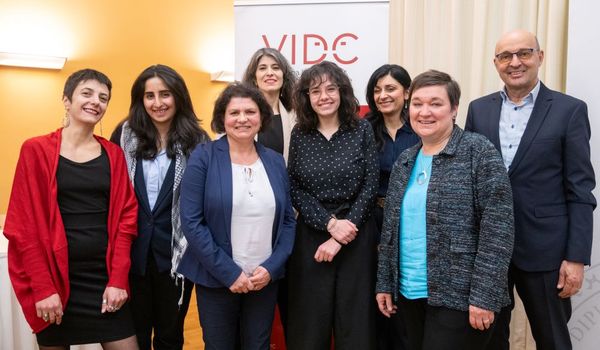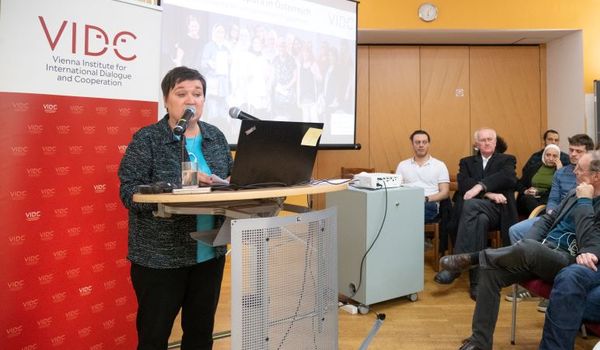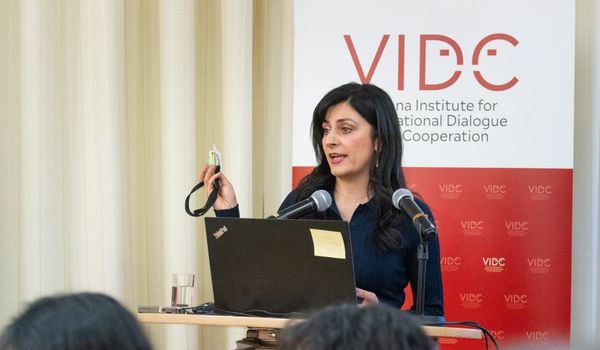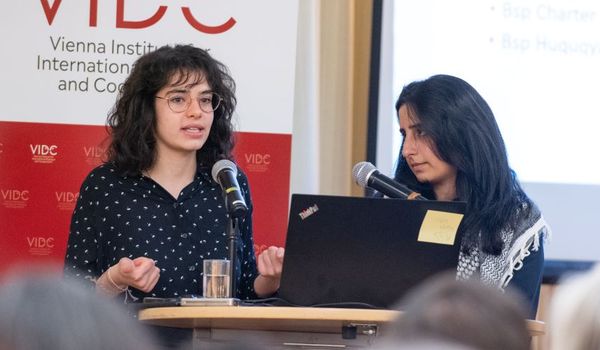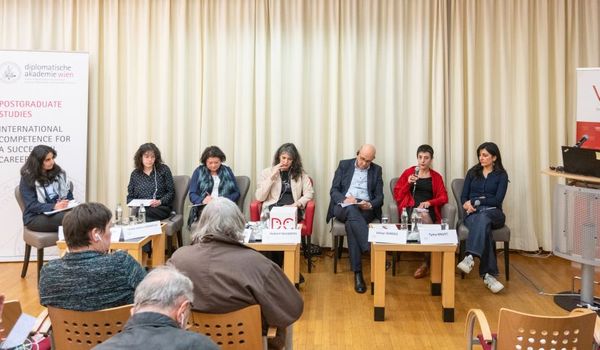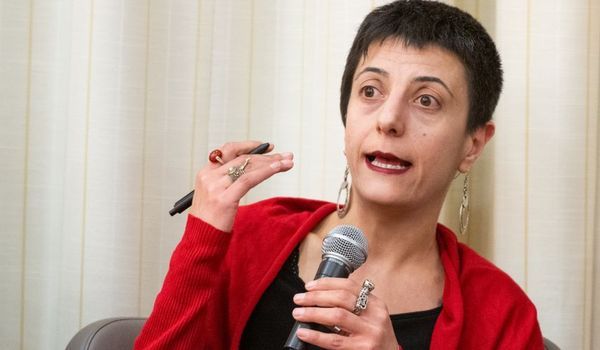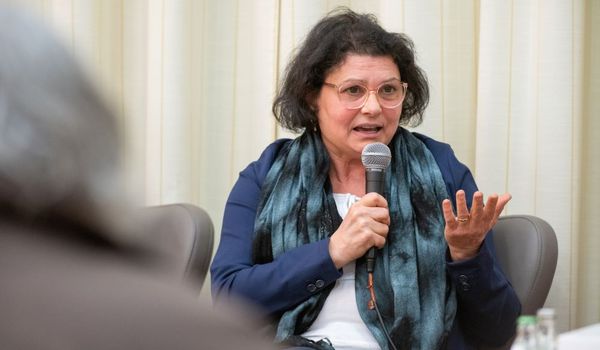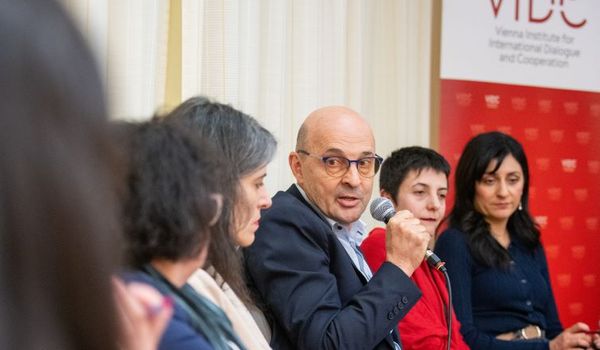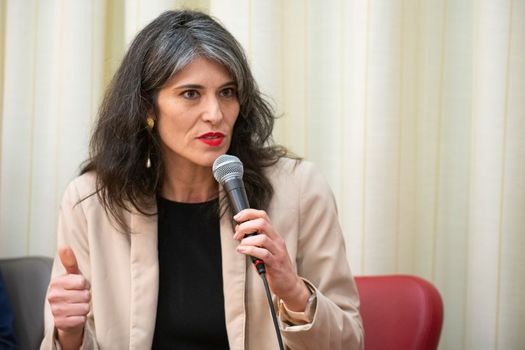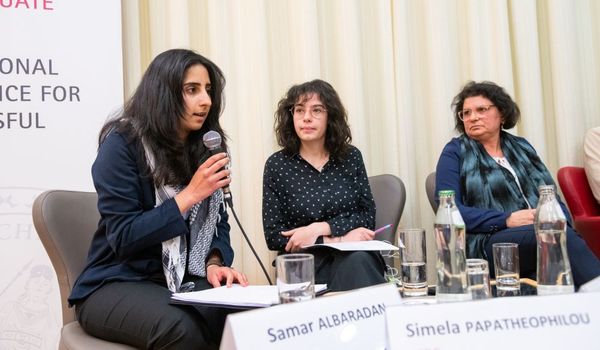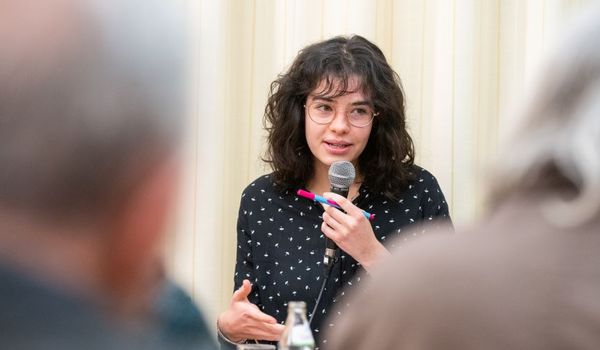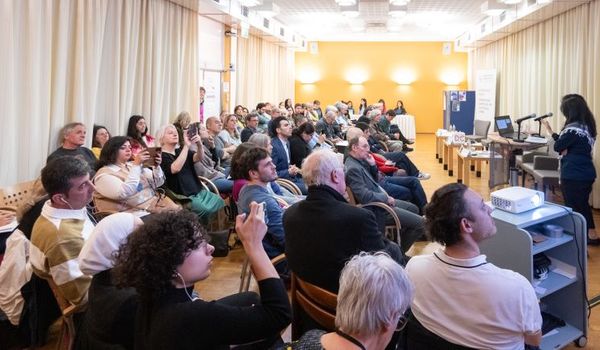The event entitled “The Syrian Diaspora in Austria - Between Humanitarian and Political Engagement” took place on Thursday, March 14 in Vienna at the Diplomatic Academy. On this evening, the authors Samar Albaradan and Simela Papatheophilou presented the results of the study commissioned by the VIDC on the engagement of the Syrian diaspora in Austria. The results were then commented on by the experts Jelnar Ahmad (Impact, Berlin), Hubert Neuwirth (Austrian Development Agency), Caroline Niknafs (Dachverband der Wiener Sozialeinrichtungen) and Fatmé Khalil-Hammoud (Municipal Department for Integration and Diversity of the City of Vienna - MA17).
As part of the focus on migration and development, VIDC Global Dialogue sheds light on the diaspora engagement of different communities with the aim of learning more about the potential, priorities and needs of the diaspora, making the mostly voluntary engagement of the diaspora more visible and supporting their demands on Austrian organizations and institutions. The current study, which focuses on the Syrian community in Austria (approx. 68,400 people), provides an important insight into the humanitarian and political commitment of Syrians in exile in Austria. The study focused on the fields of activity and the challenges faced by the Syrian community in their engagement. The study also formulates important demands for Austrian institutions. It is “one of the first studies in Austria to deal with the Syrian diaspora and its needs”, according to Jelnar Ahmad from Impact, a Berlin-based organization that investigates and promotes the civil society engagement of Syrian communities across Europe. In her contribution, she pointed out parallels and differences between Germany and Austria, such as the founding and financing of an umbrella organization for Syrian organizations and associations in Germany.
“Communities take on tasks that the state does not fulfill.”
This is one conclusion of the study. The study makes it clear that Syrians are very active, especially in areas where state organizations leave a gap, such as in the areas of counselling and language acquisition. Also worth mentioning are various cultural and sports clubs, health-promoting projects as well as collective and individual (mostly at family level) initiatives to provide humanitarian aid in their country of origin. “It is very important what the diaspora does,” emphasized Hubert Neuwirth, highlighting in particular the transnational commitment of Syrians, whose remittances to their families in Syria are of enormous importance. In order to expand and professionalize this transnational commitment, the study calls for further training measures for project planning and implementation for the community.
Syrian people in Austria are also involved in politics, but they often face bureaucratic hurdles. In addition to the impossibility of participating in the political process in Austria, for example in elections, there is often a lack of information about where this would be possible, such as the possibility of participating in the AK elections, for which Austrian citizenship is not required. The Syrian community's political engagement also includes its commitment to the legal investigation of war crimes committed during the Syrian war. Syrians living in Austria are also involved in the numerous Europe-wide initiatives that are working towards this goal. The creation of a UN institution with a mandate to search for missing persons in Syria represents a first important success in this regard.
“Very often people talk about the Syrian community, but very rarely do the Syrians themselves have their say.”
The study shows the potential and the lively commitment of the Syrian community, but also makes it clear that state institutions and Austrian NGOs should involve Syrians much more in their integrative work. This should be done on an equal footing. Syrian people, who have long had the professional skills, should have a say and also be able to help shape decisions that affect the community. Without this opportunity, the active members of the diaspora will continue to encounter difficulties and obstacles that cause frustration. The more the community is excluded from the integration process, the lower the chances of success. In this context, it should also be emphasized that there are still divisions in the Syrian community that are linked to the ongoing conflict in Syria, which often makes cooperation between different groups more difficult. “Fear is still evident in their new home. Fear that they will have to go back to Syria and mistrust of state institutions,” said Simela Papatheophilou, describing her observations. A fact that is understandable after living under a dictatorial regime in Syria.
“Mental health must be more prominent in the integration process!”
There is often a misconception that arriving in a safe country like Austria solves all of a refugee's problems. Traumas do not disappear over time, as the problem and the trigger are still present. There is a great need for psychotherapy, emphasized Caroline Niknafs. She highlighted the problem of the lack of therapy places for those affected and at the same time called for free psychotherapy training for people from the communities. “Decision-makers have not understood how necessary and urgent this is,” she emphasized several times and thus comfirmed one of the demands of the study.
“Attempts are being made to involve the Syrian community through projects and workshops.”
In her comments, Fatmé Khalil-Hammoud outlined the various integration services offered by the City of Vienna. It is important that these offers are multilingual, as this means that more people from the communities make use of them. Syrian actors can and do apply for financial support for associations, projects and initiatives. However, due to bureaucracy and strict requirements, they often have to adapt their plans and strategies in order to receive funding. This makes it clear that the financial aspect is one of the most important challenges when it comes to integrative and cultural community work.

